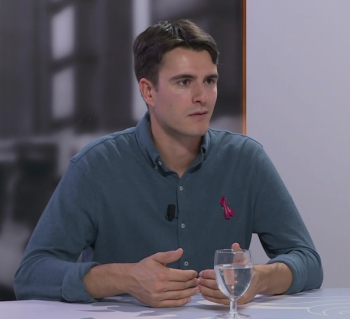Latest News
86 nations urge safer AI at New Delhi summit, but stop short of binding rules
 86 nations urge safer AI at New Delhi summit, but stop short of binding rules
86 nations urge safer AI at New Delhi summit, but stop short of binding rules
EU clears path for Germany’s long-term control of Rosneft refineries, securing Berlin’s fuel supply
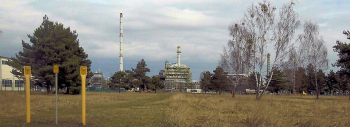 EU clears path for Germany’s long-term control of Rosneft refineries, securing Berlin’s fuel supply
EU clears path for Germany’s long-term control of Rosneft refineries, securing Berlin’s fuel supply
Dutch mayors sound alarm on polarization and threats to democracy ahead of local elections
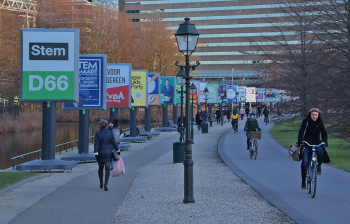 Dutch mayors sound alarm on polarization and threats to democracy ahead of local elections
Dutch mayors sound alarm on polarization and threats to democracy ahead of local elections
Slovakia warns it will cut emergency power to Ukraine if Druzhba oil transit is not restored
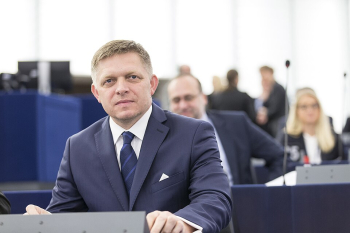 Slovakia warns it will cut emergency power to Ukraine if Druzhba oil transit is not restored
Slovakia warns it will cut emergency power to Ukraine if Druzhba oil transit is not restored
Treasury grip on transport funding is holding back UK regional economies, think tank says
 Treasury grip on transport funding is holding back UK regional economies, think tank says
Treasury grip on transport funding is holding back UK regional economies, think tank says
EU flag confiscated at Milan-Cortina Olympics venue
 EU flag confiscated at Milan-Cortina Olympics venue
EU flag confiscated at Milan-Cortina Olympics venue
Russia escalates hybrid attacks across Europe, Dutch intelligence warns
 Russia escalates hybrid attacks across Europe, Dutch intelligence warns
Russia escalates hybrid attacks across Europe, Dutch intelligence warns
Belgium’s budget passes EU test as Commission signals leeway on 2025 overshoot
 Belgium’s budget passes EU test as Commission signals leeway on 2025 overshoot
Belgium’s budget passes EU test as Commission signals leeway on 2025 overshoot
Must Read
-
 Zurich introduces Eruv, creating a Sabbath-friendly public zone for Jewish life
Zurich has quietly drawn a new kind of line across the city — one that cannot be seen at first glance, yet carries deep religious and social meaning. Spanning severalRead More...
Zurich introduces Eruv, creating a Sabbath-friendly public zone for Jewish life
Zurich has quietly drawn a new kind of line across the city — one that cannot be seen at first glance, yet carries deep religious and social meaning. Spanning severalRead More... -
 Zurab Musinyan: “Let my case lie at door of Russian special services combating international terrorism…”
Specialized Oil-Loading Seaport Vitino captured by Russian security officials through hostage taking keeps on being a subject of carve-up and litigations by Russian and international companies....Read More...
Zurab Musinyan: “Let my case lie at door of Russian special services combating international terrorism…”
Specialized Oil-Loading Seaport Vitino captured by Russian security officials through hostage taking keeps on being a subject of carve-up and litigations by Russian and international companies....Read More... -
 Young Europeans losing faith in democracy
Recent findings from a comprehensive survey conducted by the YouGov institute for the Tui Foundation reveal a concerning trend among Europe’s youth: a growingRead More...
Young Europeans losing faith in democracy
Recent findings from a comprehensive survey conducted by the YouGov institute for the Tui Foundation reveal a concerning trend among Europe’s youth: a growingRead More... -
 World Refugee Day: Joint Statement by the European Commission and the High Representative
No country, no region in the world has been spared from the impact of COVID-19. The virus is exacerbating existing inequalities and has a disproportionate effect on refugees,Read More...
World Refugee Day: Joint Statement by the European Commission and the High Representative
No country, no region in the world has been spared from the impact of COVID-19. The virus is exacerbating existing inequalities and has a disproportionate effect on refugees,Read More... -
 World peace under strain — yet some countries still shine
As a storm of conflicts, rising militarisation and geopolitical fragmentation rattles the globe, the annual Global Peace Index 2025 paints a soberingRead More...
World peace under strain — yet some countries still shine
As a storm of conflicts, rising militarisation and geopolitical fragmentation rattles the globe, the annual Global Peace Index 2025 paints a soberingRead More... -
 Women still a minority among Flemish professors despite gains elsewhere
Women account for just one in three professors and visiting professors at Flemish universities, according to new figures released on Tuesday by Statistiek Vlaanderen.Read More...
Women still a minority among Flemish professors despite gains elsewhere
Women account for just one in three professors and visiting professors at Flemish universities, according to new figures released on Tuesday by Statistiek Vlaanderen.Read More... -
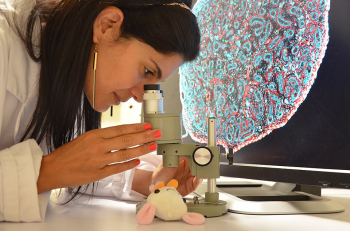 Women in science and engineering hit record 7.9 million in the EU, new data show
The presence of women in science and engineering across the European Union continues to grow, reaching a new milestone in 2024. According to theRead More...
Women in science and engineering hit record 7.9 million in the EU, new data show
The presence of women in science and engineering across the European Union continues to grow, reaching a new milestone in 2024. According to theRead More...
Latest News
86 nations urge safer AI at New Delhi summit, but stop short of binding rules
 86 nations urge safer AI at New Delhi summit, but stop short of binding rules
86 nations urge safer AI at New Delhi summit, but stop short of binding rules
EU clears path for Germany’s long-term control of Rosneft refineries, securing Berlin’s fuel supply
 EU clears path for Germany’s long-term control of Rosneft refineries, securing Berlin’s fuel supply
EU clears path for Germany’s long-term control of Rosneft refineries, securing Berlin’s fuel supply
Dutch mayors sound alarm on polarization and threats to democracy ahead of local elections
 Dutch mayors sound alarm on polarization and threats to democracy ahead of local elections
Dutch mayors sound alarm on polarization and threats to democracy ahead of local elections
Slovakia warns it will cut emergency power to Ukraine if Druzhba oil transit is not restored
 Slovakia warns it will cut emergency power to Ukraine if Druzhba oil transit is not restored
Slovakia warns it will cut emergency power to Ukraine if Druzhba oil transit is not restored
Treasury grip on transport funding is holding back UK regional economies, think tank says
 Treasury grip on transport funding is holding back UK regional economies, think tank says
Treasury grip on transport funding is holding back UK regional economies, think tank says
EU flag confiscated at Milan-Cortina Olympics venue
 EU flag confiscated at Milan-Cortina Olympics venue
EU flag confiscated at Milan-Cortina Olympics venue
Russia escalates hybrid attacks across Europe, Dutch intelligence warns
 Russia escalates hybrid attacks across Europe, Dutch intelligence warns
Russia escalates hybrid attacks across Europe, Dutch intelligence warns
Belgium’s budget passes EU test as Commission signals leeway on 2025 overshoot
 Belgium’s budget passes EU test as Commission signals leeway on 2025 overshoot
Belgium’s budget passes EU test as Commission signals leeway on 2025 overshoot
Must Read
-
 Zurich introduces Eruv, creating a Sabbath-friendly public zone for Jewish life
Zurich has quietly drawn a new kind of line across the city — one that cannot be seen at first glance, yet carries deep religious and social meaning. Spanning severalRead More...
Zurich introduces Eruv, creating a Sabbath-friendly public zone for Jewish life
Zurich has quietly drawn a new kind of line across the city — one that cannot be seen at first glance, yet carries deep religious and social meaning. Spanning severalRead More... -
 Zurab Musinyan: “Let my case lie at door of Russian special services combating international terrorism…”
Specialized Oil-Loading Seaport Vitino captured by Russian security officials through hostage taking keeps on being a subject of carve-up and litigations by Russian and international companies....Read More...
Zurab Musinyan: “Let my case lie at door of Russian special services combating international terrorism…”
Specialized Oil-Loading Seaport Vitino captured by Russian security officials through hostage taking keeps on being a subject of carve-up and litigations by Russian and international companies....Read More... -
 Young Europeans losing faith in democracy
Recent findings from a comprehensive survey conducted by the YouGov institute for the Tui Foundation reveal a concerning trend among Europe’s youth: a growingRead More...
Young Europeans losing faith in democracy
Recent findings from a comprehensive survey conducted by the YouGov institute for the Tui Foundation reveal a concerning trend among Europe’s youth: a growingRead More... -
 World Refugee Day: Joint Statement by the European Commission and the High Representative
No country, no region in the world has been spared from the impact of COVID-19. The virus is exacerbating existing inequalities and has a disproportionate effect on refugees,Read More...
World Refugee Day: Joint Statement by the European Commission and the High Representative
No country, no region in the world has been spared from the impact of COVID-19. The virus is exacerbating existing inequalities and has a disproportionate effect on refugees,Read More... -
 World peace under strain — yet some countries still shine
As a storm of conflicts, rising militarisation and geopolitical fragmentation rattles the globe, the annual Global Peace Index 2025 paints a soberingRead More...
World peace under strain — yet some countries still shine
As a storm of conflicts, rising militarisation and geopolitical fragmentation rattles the globe, the annual Global Peace Index 2025 paints a soberingRead More... -
 Women still a minority among Flemish professors despite gains elsewhere
Women account for just one in three professors and visiting professors at Flemish universities, according to new figures released on Tuesday by Statistiek Vlaanderen.Read More...
Women still a minority among Flemish professors despite gains elsewhere
Women account for just one in three professors and visiting professors at Flemish universities, according to new figures released on Tuesday by Statistiek Vlaanderen.Read More... -
 Women in science and engineering hit record 7.9 million in the EU, new data show
The presence of women in science and engineering across the European Union continues to grow, reaching a new milestone in 2024. According to theRead More...
Women in science and engineering hit record 7.9 million in the EU, new data show
The presence of women in science and engineering across the European Union continues to grow, reaching a new milestone in 2024. According to theRead More...

Poland’s Foreign Minister Radoslaw Sikorski has called for a more balanced leadership of Europe, arguing that Germany and France are now “too
Read more: Poland’s Sikorski: Germany and France “too weak” to lead Europe, Eastern voices needed

Poland’s foreign minister Radosław Sikorski has warned that relations between Europe and the United States are becoming increasingly strained,

The dismissal of four long-serving employees at Le Soir this week has once again drawn attention to the growing financial crisis gripping Belgium’s
Read more: Belgian media under strain as layoffs hit Le Soir and other major newsrooms

European Union leaders have agreed to fast-track efforts to finally complete the bloc’s single market, pledging decisive action over the next two years to remove stubborn barriers
Read more: EU leaders set 2026–2027 deadline to finish single market after Alden Biesen talks

The Parliamentary Assembly of the Council of Europe has renewed its call for stronger youth participation in democratic life, warning that Europe’s democratic future depends on
Read more: Council of Europe urges governments to treat young people as equal partners in democracy

